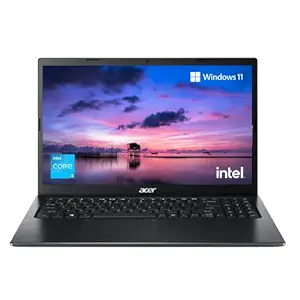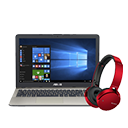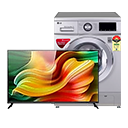
10 Best Laptop 2023 – Are you in the market for a new laptop? Buying a laptop can be daunting and overwhelming. With so many options, features, and specifications to consider, it’s hard to know what to look for when making your purchase.
That’s why we’ve put together this ultimate guide on laptop buying. In this guide, we will cover everything from the features you should look for in a laptop to how to find the right one for your needs.
We hope that by the end of this guide, you will have all the information you need to make an informed decision and find the perfect laptop for you.
With so many different types of laptops available in the market, it can be difficult to decide which one is best for you.
To make sure that you get the right laptop for your needs, it is important to understand the different types of laptops and what features should you look out for when buying a laptop.
This guide will help you determine which type of laptop is best suited for your needs. We’ll also discuss what features should be considered when shopping around for a laptop in 2023.
From budget laptops to gaming laptops, we’ll provide an overview of all the different types of laptops and their respective features so that you can make an informed decision when purchasing a laptop this year.
Choosing the right laptop for your needs is an important decision. You need to consider what you will be using it for, whether it’s work, school, gaming or video editing.
There are many different laptops available on the market and depending on what you are looking for, you need to make sure that your laptop has the correct specifications to meet your needs.
When selecting a laptop, there are several factors you should consider such as processor type, RAM size and storage capacity.
The processor type is important as it determines how quickly and efficiently your laptop can run programs and applications.
RAM size is also important as it affects how quickly your computer can multitask and store information in memory. Lastly, storage capacity will determine how much data you can store on your device.
Contents
- 10 Best Laptop Price List 2023
- 10 Best Laptop in India 2023
- 1. HP Pavilion 14 12th Gen Intel Core i5 (14-dv2014TU)
- 2. HP 14s, 11th Gen Intel Core i3-1115G4 (14s-dy2507TU)
- 3. Dell Inspiron 3520, 12th Gen Intel Core i5-1235U (D560900WIN9B)
- 4. ASUS VivoBook 15, Intel Core i3-1005G1 10th Gen (X515JA-EJ382WS)
- 5. HP 15s, 12th Gen Intel Core i5 (fq5111TU)
- 6. Lenovo IdeaPad Slim 3 Intel Core i3 11th Gen (82H701DNIN)
- 7. HP 15s,12th Gen Intel Core i3-1215U (15s-fq5007TU)
- 8. ASUS Vivobook 14, Intel Core i3-1005G1 10th Gen (X415JA-EK324WS)
- 9. Redmi Book 15, Intel Core I3 11Th Gen
- 10. Acer Extensa 15, 11th Gen Intel Core i3 (EX215-54)
- (1) Laptop Buyer’s Guide: What to Consider Before Making a Purchase
- (2) Understanding Laptop Specifications: Processor, RAM, Storage, and Graphics
- (3) How to Choose the Best Laptop for Your Needs
- (4) Laptop vs Desktop: Pros and Cons of Each
- (5) A Guide to Laptop Battery Life: Tips and Tricks to Extend It
- (6) Role of Laptops in Remote Work and Education
- (7) Laptop Security: Best Practices for Protecting Your Data
- 10 Best Laptop Offer List 2023
- Laptop FAQs
- top 10 laptop brands, best laptop under 50000, top 10 laptops in india under 50000, best budget laptop, best laptop in india under 40000, best laptop brands in india, asus laptop, top 10 laptops in india
10 Best Laptop Price List 2023
| S.No. | Laptop | Price |
|---|---|---|
| 1. | HP Pavilion 14 12th Gen Intel Core i5 (14-dv2014TU) | ₹68,114 |
| 2. | HP 14s, 11th Gen Intel Core i3-1115G4 (14s-dy2507TU) | ₹37,990 |
| 3. | Dell Inspiron 3520, 12th Gen Intel Core i5-1235U (D56090 0WIN9B) | ₹64,400 |
| 4. | ASUS VivoBook 15, Intel Core i3-1005G1 10th Gen (X515JA-EJ382WS) | ₹32,850 |
| 5. | HP 15s, 12th Gen Intel Core i5 (fq5111TU) | ₹58,018 |
| 6. | Lenovo IdeaPad Slim 3 Intel Core i3 11th Gen (82H70 1DNIN) | ₹40,990 |
| 7. | HP 15s,12th Gen Intel Core i3-1215U (15s-fq5007TU) | ₹44,990 |
| 8. | ASUS Vivobook 14, Intel Core i3-1005G1 10th Gen (X415JA-EK324WS) | ₹33,496 |
| 9. | Redmi Book 15, Intel Core I3 11Th Gen | ₹32,490 |
| 10. | Acer Extensa 15, 11th Gen Intel Core i3 (EX215-54) | ₹32,990 |
Recent Posts:
- Polk vs Sony Soundbars: Making the Right Choice
- Sonos vs Polk Soundbars: A Comprehensive Comparison
- Polk vs JBL Soundbars: A Comprehensive Comparison
- Polk vs Bose Soundbars: A Comprehensive Comparison
10 Best Laptop in India 2023
1. HP Pavilion 14 12th Gen Intel Core i5 (14-dv2014TU)
Brand: HP
Screen Size: 14 Inches
CPU: Core i5
RAM: 16 GB
Operating System: Windows 11 Home
Price: ₹68,114
Rating: 4.2/5
2. HP 14s, 11th Gen Intel Core i3-1115G4 (14s-dy2507TU)
Brand: HP
Screen Size: 14 Inches
CPU: Core i3
RAM: 8 GB
Operating System: Windows 11 Home
Price: ₹37,990
Rating: 4.0/5
3. Dell Inspiron 3520, 12th Gen Intel Core i5-1235U (D560900WIN9B)
Brand: Dell
Screen Size: 15.6 Inches
CPU: Core i5-1235U
RAM: 8 GB
Operating System: Windows 11 Home
Price: ₹64,400
Rating: 5.0/5
4. ASUS VivoBook 15, Intel Core i3-1005G1 10th Gen (X515JA-EJ382WS)
Brand: ASUS
Screen Size: 15.6 Inches
CPU: Core i3-1005G1
RAM: 8 GB
Operating System: Windows 11
Price: ₹32,850
Rating: 3.9/5
5. HP 15s, 12th Gen Intel Core i5 (fq5111TU)
Brand: HP
Screen Size: 15.6 Inches
CPU: Core i5
RAM: 8 GB
Operating System: Windows 11 Home
Price: ₹58,018
Rating: 4.1/5
6. Lenovo IdeaPad Slim 3 Intel Core i3 11th Gen (82H701DNIN)
Brand: Lenovo
Screen Size: 14 Inches
CPU: Core i3
RAM: 8 GB
Operating System: Windows 11 Home
Price: ₹40,990
Rating: 4.0/5
7. HP 15s,12th Gen Intel Core i3-1215U (15s-fq5007TU)
Brand: HP
Screen Size: 39.6 Centimetres
CPU: Core i3
RAM: 8 GB
Operating System: Windows 11 Home
Price: ₹44,990
Rating: 4.3/5
More Info : HP official website. Click here!
8. ASUS Vivobook 14, Intel Core i3-1005G1 10th Gen (X415JA-EK324WS)
Brand: ASUS
Screen Size: 35.56 Centimetres
CPU: Core i3
RAM: 8 GB
Operating System: Windows 11 Home
Price: ₹33,496
Rating: 4.0/5
9. Redmi Book 15, Intel Core I3 11Th Gen
Brand: Redmi
Screen Size: 39.62 Centimetres
CPU: Core i3
RAM: 8 GB
Operating System: Windows 10 Home
Price: ₹32,490
Rating: 3.9/5
10. Acer Extensa 15, 11th Gen Intel Core i3 (EX215-54)
Brand: Acer
Screen Size: 15.6 Inches
CPU: Core i3
RAM: 8 GB
Operating System: Windows 11 Home
Price: ₹32,990
Rating: 4.0/5
Disclaimer: Prices and ratings mentioned in this article are approximate and subject to change. Be sure to check the latest prices and reviews before making a purchase.
(1) Laptop Buyer’s Guide: What to Consider Before Making a Purchase
Buying a laptop can be a daunting task, especially with the wide variety of options available on the market.
To make the process easier, here is a buyer’s guide to help you choose the right laptop for your needs.
- Determine your needs: The first step in buying a laptop is to determine your needs. Are you looking for a laptop for basic tasks like web browsing and word processing, or do you need a laptop for more demanding tasks like video editing or gaming? Knowing your needs will help you narrow down your options.
- Consider the size and weight: Laptops come in a range of sizes, from compact 11-inch models to large 17-inch models. Think about how you plan to use your laptop and choose a size that fits your needs. Additionally, consider the weight of the laptop, especially if you plan to carry it around frequently.
- Choose the right processor: The processor is the brain of the laptop, and it’s important to choose the right one. If you’re using your laptop for basic tasks, an Intel Core i3 or AMD Ryzen 3 processor should suffice. For more demanding tasks, like gaming or video editing, consider a more powerful processor like an Intel Core i7 or AMD Ryzen 7.
- Look at the RAM: RAM, or Random Access Memory, is another important factor to consider. For basic tasks, 4GB of RAM should be enough. For more demanding tasks, like video editing, look for a laptop with at least 8GB of RAM. If you plan to run multiple programs at the same time, consider a laptop with 16GB of RAM or more.
- Storage options: There are two main types of storage options in laptops: traditional hard drives and solid-state drives (SSDs). SSDs are faster and more reliable than traditional hard drives, but they are also more expensive. If speed is important to you, consider a laptop with an SSD.
- Display: The display is another important factor to consider. If you plan to use your laptop for graphic design or video editing, consider a laptop with a high-resolution display. If you plan to use your laptop primarily for web browsing and word processing, a lower resolution display should be sufficient.
- Battery life: Battery life is an important consideration, especially if you plan to use your laptop on the go. Look for a laptop with a battery life of at least 6 hours, or consider purchasing an extra battery.
- Ports: Consider the ports you need, such as USB, HDMI, or Ethernet. If you plan to connect your laptop to an external display or other devices, make sure the laptop has the necessary ports.
- Operating system: There are two main operating systems for laptops: Windows and macOS. Windows is more widely used and offers a wider variety of laptops at different price points. macOS is only available on Apple laptops, which tend to be more expensive.
- Price: Laptops come in a range of prices, from under ₹20,000 to over ₹2,00,000. Set a budget before you start shopping, and look for laptops that fit within your price range.
In conclusion, buying a laptop can be a complex process, but following these guidelines can make it easier to find the right laptop for your needs.
Consider your needs, the size and weight, the processor, RAM, storage options, display, battery life, ports, operating system, and price to make an informed decision.
(2) Understanding Laptop Specifications: Processor, RAM, Storage, and Graphics
Understanding the specifications of a laptop is important to determine if it will meet your needs. Here is a brief explanation of some of the main specifications you should consider:
- Processor: The processor is the brain of the laptop and determines how quickly it can process information. Intel and AMD are the two main manufacturers of processors. Intel Core i5 or i7, or AMD Ryzen 5 or 7 are good choices for most users.
- RAM: Random Access Memory (RAM) is a type of memory used to temporarily store data while the computer is running. At least 8GB of RAM is recommended for most users, but 16GB or more may be needed for gaming or creative tasks.
- Storage: Storage refers to the amount of space available to store files, programs, and the operating system. Solid State Drives (SSD) are faster than traditional Hard Disk Drives (HDD) and are a better choice for faster boot-up times and program loading. Look for at least 256GB or 512GB of storage, but 1TB or more may be needed for larger files.
- Graphics: The graphics card determines how well the laptop can display images and videos. Integrated graphics, built into the processor, are sufficient for basic tasks such as web browsing, but a dedicated graphics card is recommended for gaming and creative tasks.
- Display: The display determines the quality of the visual experience. Look for a display size that is comfortable for you, and features such as high resolution or touchscreen capabilities.
- Battery: The battery life determines how long the laptop can be used without being plugged in. Look for a laptop with a battery life that suits your needs.
By understanding these specifications, you can determine if a laptop will meet your needs and provide a satisfactory performance for the tasks you intend to perform.
(3) How to Choose the Best Laptop for Your Needs
Choosing the best laptop for your needs can be a daunting task. Here are some tips to help you make the right decision:
- Determine your budget: Laptops come in a range of prices, so decide how much you are willing to spend.
- Consider your needs: Determine what you will be using your laptop for (e.g. browsing, work, gaming, or creative tasks) and choose a laptop with the appropriate specifications.
- Check the processor: Choose a laptop with a processor that is powerful enough to handle your tasks. Intel Core i5 or i7, or AMD Ryzen 5 or 7 are good choices for most users.
- Look at RAM and storage: At least 8GB of RAM is recommended for most users, and consider the amount of storage you need (e.g. 256GB, 512GB, or 1TB).
- Check the graphics: If you plan to use your laptop for gaming or creative tasks, consider a laptop with a dedicated graphics card.
- Consider the display: Choose a display size that is comfortable for you, and look for features such as high resolution or touchscreen capabilities.
- Check the battery life: Look for a laptop with a battery life that suits your needs.
- Read reviews: Read reviews from other users or reputable tech websites to get an idea of the performance and reliability of the laptop.
By considering these factors, you can find a laptop that meets your needs and budget, and will perform well for your intended use.
(4) Laptop vs Desktop: Pros and Cons of Each
Laptop and desktop computers each have their own advantages and disadvantages. Here are some pros and cons of each:
Laptop Pros:
- Portability: Laptops are designed to be easily transported and used on-the-go.
- Space-saving: Laptops take up less space than desktops and are ideal for smaller living spaces.
- Battery life: Laptops have built-in batteries, making them ideal for use in places without easy access to power outlets.
- All-in-one: Laptops have everything built in, including a keyboard, touchpad, and display.
Laptop Cons:
- Limited upgradability: Most components in laptops are not easily replaceable, making upgrades more difficult and expensive.
- Reduced performance: Laptops may not have the same level of performance as desktops due to their smaller size and power limitations.
- Expensive: Laptops with high-end specifications can be more expensive than desktops with similar performance.
- Limited screen size: Laptops generally have smaller displays compared to desktops, which may not be ideal for some users.
Desktop Pros:
- Performance: Desktops can have more powerful processors and graphics cards, making them ideal for gaming, creative work, or other performance-intensive tasks.
- Upgradability: Desktop components are more easily replaceable, making upgrades more straightforward and cost-effective.
- Multiple displays: Desktops can support multiple displays, allowing for increased productivity or enhanced gaming experiences.
- Affordable: Desktops can offer high performance for less money compared to laptops with similar specifications.
Desktop Cons:
- Space: Desktops take up more space than laptops and require a dedicated work area.
- Limited portability: Desktops are not designed for portability and can be difficult to transport.
- Additional peripherals: Desktops require additional peripherals such as a monitor, keyboard, and mouse, which can add to the overall cost.
- Power consumption: Desktops typically consume more power than laptops, which can increase your energy costs over time.
Ultimately, the decision between a laptop and desktop will depend on your specific needs and preferences.
(5) A Guide to Laptop Battery Life: Tips and Tricks to Extend It
Laptop battery life is a critical aspect of its usability, and there are ways to extend it. Here are some tips and tricks to help you maximize your laptop battery life:
- Adjust screen brightness: Lowering the screen brightness can help save battery life. Consider using the “auto-brightness” setting that automatically adjusts the brightness according to ambient light conditions.
- Turn off Wi-Fi and Bluetooth: Disabling wireless connectivity when it is not needed can save a considerable amount of battery life.
- Unplug peripherals: Disconnect external devices such as printers, USB drives, and external hard drives when not in use, as they consume battery power.
- Close unused programs and browser tabs: Applications and browser tabs that are not in use can drain battery life. Closing them can save power.
- Adjust power settings: Most laptops have power settings that can be adjusted to optimize battery life. Consider using the “power saver” mode or customizing your power settings for your specific usage.
- Keep your laptop cool: High temperatures can reduce battery life. Ensure that your laptop is well ventilated and use a cooling pad or stand to help dissipate heat.
- Use hibernate mode: Hibernate mode is an energy-saving mode that saves the current state of your laptop to the hard drive and turns off the computer. It can help conserve battery life when you are not using your laptop for an extended period.
- Replace your battery: Over time, laptop batteries will lose their ability to hold a charge. If your battery life is significantly reduced, consider replacing it with a new one.
By following these tips and tricks, you can extend your laptop’s battery life, making it more convenient to use on-the-go and reducing the need to frequently charge it.
(6) Role of Laptops in Remote Work and Education
Laptops have become an essential tool for remote work and education. Here are some ways laptops have revolutionized these areas:
- Portability: Laptops are lightweight and portable, which makes them easy to carry to different locations. This portability allows remote workers and students to work from anywhere, whether it be a coffee shop, library, or their own homes.
- Access to information: With a laptop, remote workers and students can access online resources, documents, and applications anywhere and at any time. This makes it easier to collaborate with others, complete tasks, and stay organized.
- Video conferencing: Laptops with webcams and microphones allow remote workers and students to participate in video conferences and online meetings, making it easier to communicate with colleagues and teachers.
- Productivity: Laptops are powerful tools that can run a variety of software applications, which increases productivity. This is particularly important for remote workers and students who need to complete a range of tasks and projects.
- Flexibility: Laptops offer flexibility in terms of work and learning style. Remote workers and students can choose to work at their own pace, in their own environment, and at a time that suits them best.
- Cost-effective: Laptops are relatively affordable and can be a cost-effective solution for remote work and education. They also reduce the need for expensive office or classroom equipment.
Overall, laptops have become an essential tool for remote work and education, allowing people to work and learn from anywhere with flexibility and convenience.
(7) Laptop Security: Best Practices for Protecting Your Data
Laptop security is essential for protecting your data and personal information. Here are some best practices for securing your laptop:
- Use strong passwords: Use a strong password or passphrase to protect your laptop. A strong password should be at least eight characters long and include a mix of upper and lowercase letters, numbers, and special characters.
- Use encryption: Use full-disk encryption to protect your data from unauthorized access. This ensures that if someone steals your laptop, they will not be able to access your data without the encryption key.
- Keep your operating system and software up-to-date: Regularly update your operating system and software to patch any vulnerabilities that could be exploited by cybercriminals.
- Use antivirus software: Use antivirus software to protect your laptop from malware and viruses. Keep the software up-to-date and run regular scans.
- Use a virtual private network (VPN): Use a VPN to encrypt your internet connection and protect your privacy when using public Wi-Fi.
- Avoid public Wi-Fi: Avoid connecting to public Wi-Fi, which can be insecure and easily hacked. If you need to use public Wi-Fi, use a VPN to protect your connection.
- Be cautious of phishing emails: Do not click on links or download attachments from unknown sources. Be suspicious of emails that ask for personal information or require urgent action.
- Use a firewall: A firewall can block unauthorized access to your laptop and network. Turn on the firewall on your laptop, or use a hardware firewall for additional protection.
By following these best practices, you can protect your laptop and your data from cybercriminals, hackers, and other security threats.
10 Best Laptop Offer List 2023
| # | Preview | Product | Rating | Price | |
|---|---|---|---|---|---|
| 1 |

|
HP Laptop 15s, 12th Gen Intel Core i3, 15.6-inch (39.6... | ₹ 56,261 ₹ 37,890 | Buy on Amazon | |
| 2 |

|
Lenovo IdeaPad 1 AMD Ryzen 5 5500U 15.6" (39.62cm) FHD... | ₹ 68,990 ₹ 37,700 | Buy on Amazon | |
| 3 |

|
HP Laptop 14s, 12th Gen Intel Core i3-1215U, 14-inch... | 239 Reviews | ₹ 51,266 ₹ 37,990 | Buy on Amazon |
| 4 |

|
HP Laptop 14s, AMD Ryzen 5 5500U, 14-inch (35.6 cm),... | 1,175 Reviews | ₹ 55,691 ₹ 45,324 | Buy on Amazon |
| 5 |

|
Lenovo IdeaPad Slim 3 Intel Core i3 12th Gen 15.6"... | ₹ 58,390 ₹ 33,990 | Buy on Amazon | |
| 6 |

|
HP Laptop 15s, AMD Ryzen 3 5300U, 15.6-inch (39.6 cm),... | 2,675 Reviews | ₹ 47,999 ₹ 30,990 | Buy on Amazon |
| 7 |

|
Acer Aspire Lite 12th Gen Intel Core i3-1215U Premium... | 727 Reviews | ₹ 52,990 ₹ 32,900 | Buy on Amazon |
| 8 |

|
Lenovo IdeaPad Slim 3 12th Gen Intel Core i3 15.6"... | ₹ 50,290 ₹ 34,990 | Buy on Amazon | |
| 9 |

|
Dell 15 Laptop, Intel Core i5-1135G7 Processor/ 8GB/... | ₹ 67,743 ₹ 47,990 | Buy on Amazon | |
| 10 |

|
Dell Inspiron 3501 (15.6 inches) FHD Display Laptop... | 61 Reviews | ₹ 85,000 ₹ 49,490 | Buy on Amazon |
Laptop FAQs
What should I consider when buying a laptop?
When buying a laptop, consider the following factors:
- The intended use of the laptop (gaming, work, entertainment, etc.)
- Processor type and speed
- Amount of RAM
- Storage capacity (SSD or HDD)
- Screen size and resolution
- Graphics card
- Battery life
- Weight and portability
- Brand reputation and customer service
- Price
What is a good laptop brand?
There are several good laptop brands to consider, including:
- Dell
- Lenovo
- HP
- Apple
- Asus
- Acer
- Microsoft
- MSI
What is the average lifespan of a laptop?
The average lifespan of a laptop is around 3-5 years, although this can vary depending on usage, maintenance, and the quality of the laptop itself.
Can I upgrade the RAM and storage on my laptop?
In most cases, yes. However, some laptops have non-upgradeable components, so it's important to check the specifications and user manual before attempting to upgrade.
What is the difference between SSD and HDD storage?
SSD (solid-state drive) storage is faster and more reliable than HDD (hard disk drive) storage, although it's also more expensive.
HDD storage, on the other hand, is slower but more affordable and has higher storage capacity.
What is a good battery life for a laptop?
A good battery life for a laptop is around 8 hours or more, although this can vary depending on usage and the laptop's specifications.
What is a 2-in-1 laptop?
A 2-in-1 laptop is a laptop that can be used as both a traditional laptop and a tablet.
These laptops typically have a detachable screen or a 360-degree hinge that allows the screen to be flipped and used as a tablet.
What is a gaming laptop?
A gaming laptop is a laptop that is specifically designed for playing games.
These laptops typically have a dedicated graphics card, a high refresh rate screen, and powerful processors and RAM to handle demanding games.
Should I buy a laptop with a touch screen?
It depends on your personal preferences and intended use of the laptop.
A touch screen can be useful for tasks such as drawing and note-taking, but it can also add to the cost and may not be necessary for some users.
How often should I update my laptop's software and drivers?
It's a good idea to update your laptop's software and drivers regularly to ensure optimal performance and security.
Check for updates at least once a month or enable automatic updates if possible.
How can I extend the life of my laptop?
To extend the life of your laptop, you should:
- Keep it clean and free of dust and debris
- Use a cooling pad to prevent overheating
- Avoid dropping or physically damaging the laptop
- Keep the battery charged and properly maintained
- Update software and drivers regularly
- Back up important data regularly.
|
Related Tags
top 10 laptop brands, best laptop under 50000, top 10 laptops in india under 50000, best budget laptop, best laptop in india under 40000, best laptop brands in india, asus laptop, top 10 laptops in india
Last update on 2024-05-20 at 23:19 / Affiliate links / Images from Amazon Product Advertising API





















